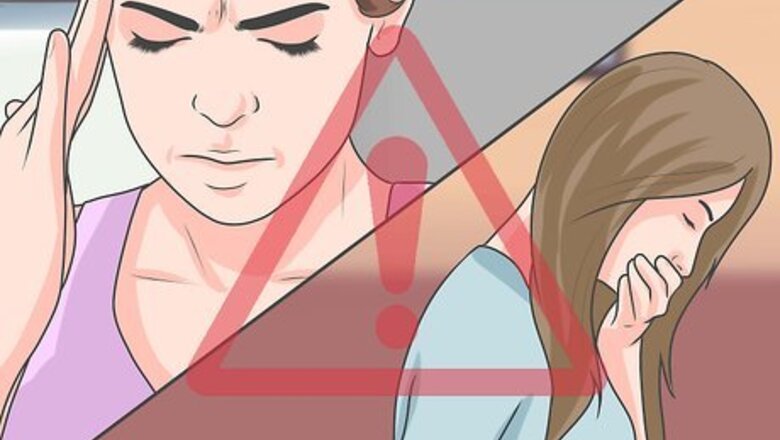
views
Preparing to Remove an Object
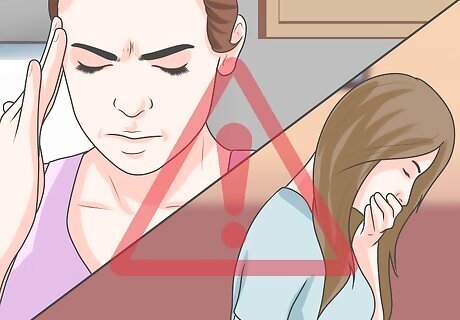
Determine if you need immediate medical attention. If you have an object lodged in your eye, then you may want to seek immediate medical attention before trying anything else. You may cause further harm by trying to remove the object from your eye on your own. Seek immediate medical attention if the object is larger than an eyelash or you experience any of the following: Nausea or vomiting Headaches or lightheadedness Double vision or impaired vision Dizziness or loss of consciousness Rashes or fever Inability to remove the object from your eye Pain, redness, or discomfort continues after the item has been removed from the eye
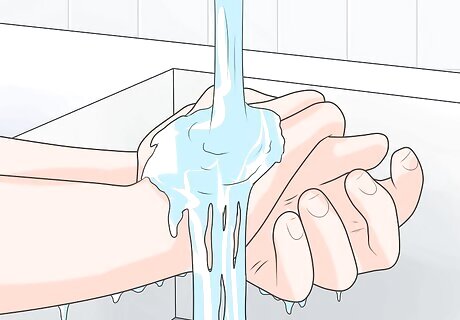
Wash your hands. Hand washing helps eliminate pathogens such as dirt, debris, or bacteria from contaminating eyes. Use antibacterial soap with warm water and wash for two minutes. Wash under nails and in between your fingers as well. These precautions should be taken to ensure that bacteria, other contaminants, or irritants are not introduced into the eyes, which are quite vulnerable to damage and infection.
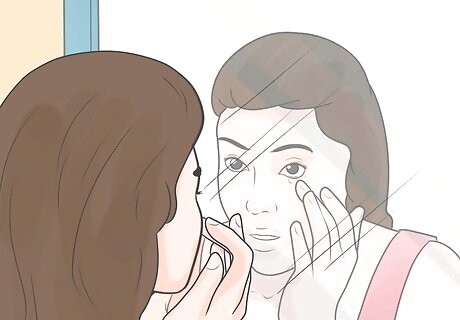
Check to see if you can see the object. Location of the foreign object can help you to determine whether the object has caused any damage to the eye. It is important to locate the object and not to attempt to put any instruments in the eye. Using other tools can harm your eye and may contaminate it as well.
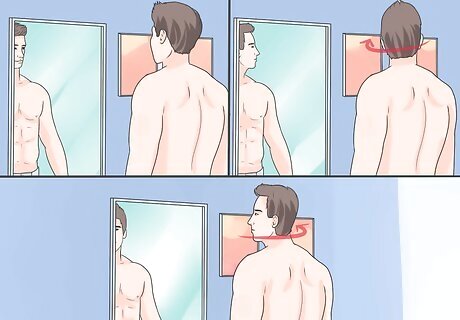
Move your eye around to help you locate the object. Move your eye back and forth in an effort to locate where the object is. Move your eye from left to right, as well as from top to bottom. It might be difficult to observe your eye while doing this. After you've moved your eye around, take a look at it in the mirror and see if you can locate where the foreign object is. Turn your head left and right and tip it up and down to move your eye while looking at it in a mirror. Use your fingers to pull your own eyelid down and then look up slowly. Repeat the process, except this time pulling your eyelid up and looking down. If it is difficult for you to see anything, then have someone else do the inspection for you.
Removing the Object
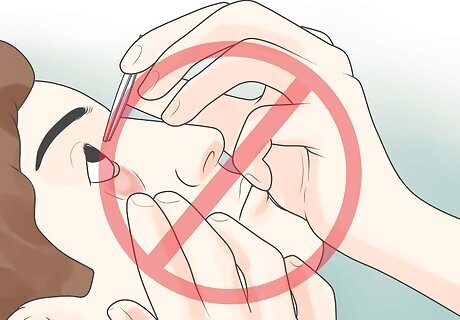
Know what to avoid. Before you attempt to remove a foreign object from your eyes, it is important to know what to avoid. Keep the following information in mind as you attempt to remove an object from your eye: Do not rub your eye if you think there's something in it, or you could scratch the surface of your eye. Never remove any piece of metal, large or small, that has lodged itself in the eye. Never put any pressure on the eye itself in an effort to dislodge the object. Never use tweezers, toothpicks, or other hard items to remove an object from your eye.
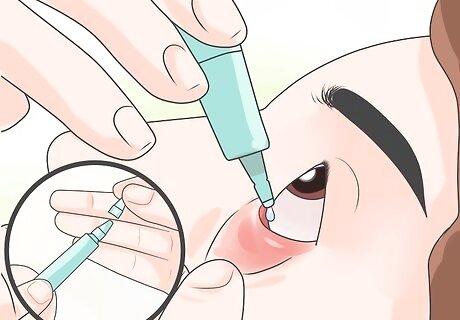
Use an eye wash solution to flush out the object. Using a sterile eye wash solution to flush out your eyes is the best way to remove a foreign object or chemical irritant from your eyes. The American National Standards Institute (ANSI) recommends flushing your eyes with water for at least fifteen minutes. Use a sterile eye wash solution to rinse eyes using a continuous stream of fluid. Keep in mind that eye wash solution does not neutralize many chemicals. It just dilutes them and washes them away. For this reason, you will need a large quantity of eye wash solution. Tap water could contain organisms or contaminants that could cause an infection, especially if the foreign object scratched your eye. However, if that's all you have available, it's ok to use it if you need to.
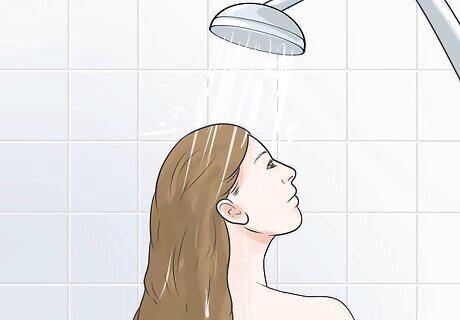
Get into the shower and allow the water to run down over your open eyes. If you are at home and you have a small foreign object in your eye such as an eyelash or piece of dirt, then you can try to flush it with gentle running water in the shower. Do not aim the water right at your eye. Instead, allow the water to hit your forehead and run down your face over your eyes. Hold the affected eye open with your fingers to allow water to run over it. Allow the water to run over your eye for a couple of minutes to see if it removes the foreign object from your eye.
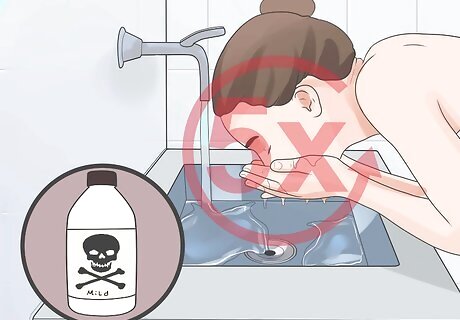
Observe rinsing times for different chemicals. The amount of time that you will need to rinse your eyes will vary based on the type of irritant or chemical that is in your eye. If you have a piece of something stuck in your eye, then you will need to wash until you feel it come out. If you have a chemical irritant in your eye as well, then you will need to rinse for a certain amount of time depending on the chemical. Rinsing will dilute the chemical, which can help prevent ongoing irritation and damage to your eyes. For mildly irritating chemicals, rinse for five minutes. For moderate-to-severe irritants, rinse for at least 20 minutes. For non-penetrating corrosives such as acids, rinse for 20 minutes. For penetrating corrosives such as alkalis, rinse for at least 60 minutes.
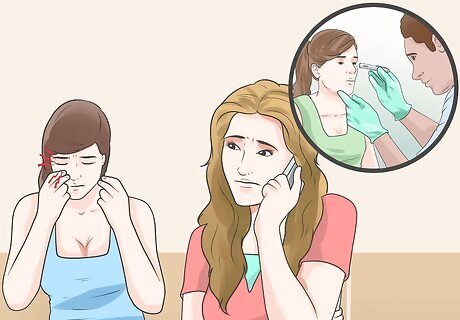
Seek immediate medical attention if you need to rinse for more than a few minutes. If the foreign object does not come out of your eye after a few minutes of rinsing or if you have gotten a severe irritant in your eye as well, then tell another person right away. Have someone call poison control and seek medical attention immediately.
Flushing Out Eyes in an Emergency
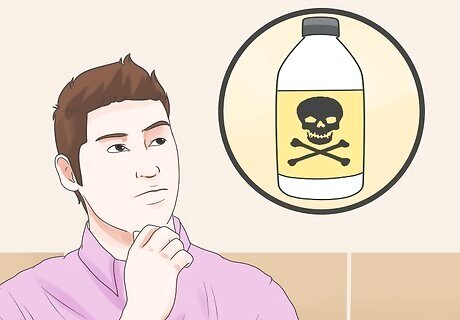
Know which injuries warrant immediate eye flushing. In some cases, like if you've introduced a serious irritant or contaminant to your eye, you shouldn't bother with sterile eye washes. Instead, your focus should be on immediately and thoroughly washing your eyes, then getting medical help. For example, if you accidentally splash your eyes with a chemical that is an acid, an alkaline (base), a corrosive, or some other kind of irritant, then stop what you're doing and flush your eyes with water right away. Keep in mind that some chemicals react adversely with water. For example, most of the alkali metals (the furthest-left column in the periodic table) react violently with water. Don't flush these chemicals with water.
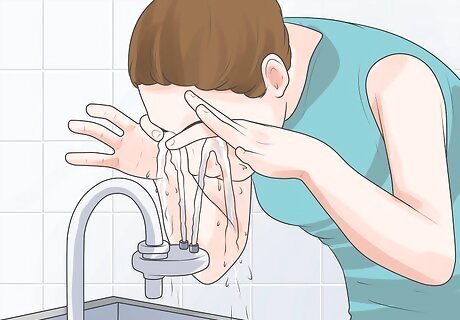
Use an eyewash station if one is available. Most places where you can may splash dangerous chemicals in your eye will come equipped with special eye wash stations. If you get a foreign object or chemical in your eye(s), go to the eye wash station right away and then: Depress the lever. The lever should be brightly marked and easy to find. Place your face in front of the water spouts. These spouts will spray water in your eyes at a low pressure. Keep your eyes as wide-open as possible. Use your fingers to keep your eyes open as you rinse them.
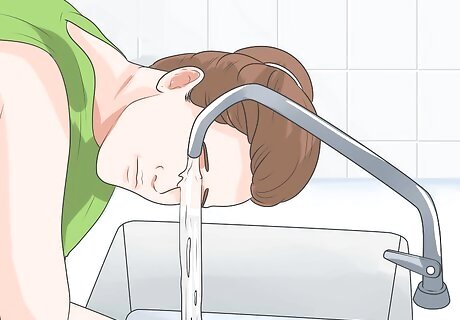
Rinse your eyes with running water from a sink. If you can't immediately find an eye wash station or you're somewhere where there are no eye wash stations (like at home), you can use the running water from your sink instead. Tap water isn't ideal for eye washing, as it's not as sterile as the purified water used in many laboratories. But it is far more important to rinse the chemicals from your eyes than it is to worry about possible infections. To wash out your eyes using the sink: Go to the nearest sink and turn the cold water on. If it is very cold, then you may want to adjust it until the temperature is lukewarm. Then, lean over the sink and splash water into your open eyes. If your sink has an adjustable faucet, point it directly into your eye at a low pressure and hold your eyes open with your fingers. Rinse your eyes for at least 15 to 20 minutes. Rinsing your eye will dilute the chemicals, which can help prevent them from damaging your eye further.
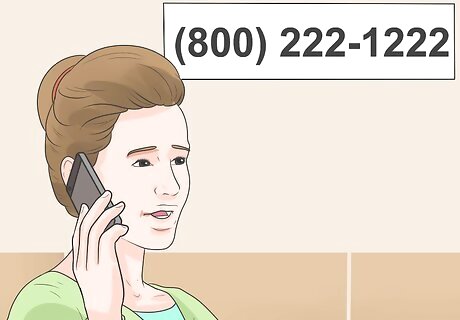
Call Poison Control for advice about chemical irritants. After you have washed out your eyes, you should call the Poison Control Center at (800) 222-1222 for advice. If possible, have someone call for you while you are rinsing out your eyes. Then, seek medical attention immediately. If you've introduced a dangerous chemical into your eyes, you need to get medical attention as soon as possible, even if you've already rinsed your eyes.
















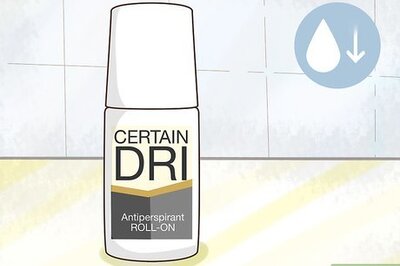

Comments
0 comment